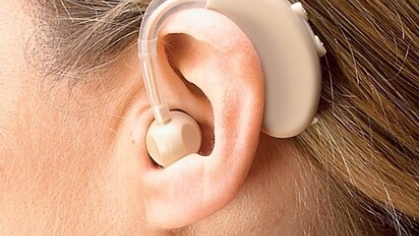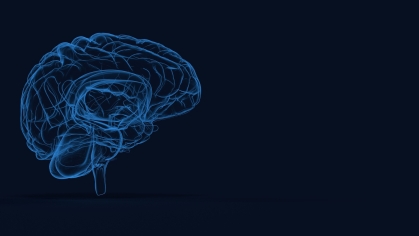
The Mowery Lab for the treatment of hearing loss works on developing effective treatments and preventative measures to combat hearing loss and auditory processing disorders.

Divisions: Department of Head and Neck Surgery & Communication Sciences
About Us
Otology and Neurotology is a branch of ENT (Otolaryngology) that deals with disorders of the ear, base of the skull, and nerves that connect the ear and brain. At the Department of Otolaryngology-Head and Neck Surgery at the Robert Wood Johnson Medical School adults and children with disorders of the ear are treated by physician-surgeon experts dedicated solely to the medical and surgical treatment of otology/neurotology conditions such as:
Our division is led by P. Ashley Wackym, MD, and Scott Shapiro, MD, nationally and internationally recognized experts in the field who are highly published researchers on neurotology conditions. They treat both children and adults. Often patients are referred by other ENT physicians due to the complex and highly specialized skillset required for ear and skull base conditions.
Though most patients are successfully treated without surgery, Dr. Wackym and Shapiro have extensive experience and expertise in specialized surgeries such as cochlear implants, bone conduction implants, and vestibular schwannoma microsurgical resection.
Frequently Asked Questions
Overview
The Division of Laryngology and Professional Voice at Robert Wood Johnson Medical School provides comprehensive, patient-centered voice and swallowing care. Our team of board-certified, fellowship-trained physicians and speech-language pathologists evaluate and treat a broad range of voice, swallowing, airway, and coughing disorders.
We work with a wide range of voice professionals including teachers, speakers, and performers, and offer the latest in diagnostic and treatment modalities. We understand the importance of the human voice as a communication tool and work closely with patients to best meet their needs.
Robert Wood Johnson University Hospital offers access to specialists across disciplines including gastroenterology, neurology, pulmonology, and rheumatology when multidisciplinary care is needed. We also provide gender-affirming voice services in conjunction with our speech-language pathology team and the PROUD Gender Center of New Jersey.
Conditions We Treat and Services We Provide
Voice disorders include breathiness, fatigue, hoarseness, strain, pain with voice use, pitch problems, tremors, and vocal breaks.
Swallowing disorders include Globus (sensation of something stuck in the throat), gastroesophageal reflux (GERD), laryngopharyngeal reflux (LPR), and difficulty swallowing.
We offer evaluation, diagnosis, and both medical and surgical treatment of a wide range of benign and malignant pathologies including:
About Us
The Comprehensive Otolaryngology Division at Robert Wood Johnson Medical School provides high-quality care for ENT problems for patients of all ages. Nearly half of all patients going to their primary care office have an ENT issue. Almost everyone has experienced an ENT issue at some point, such as a stuffy nose, clogged ear, or sore throat.
We treat a diverse range of conditions and disorders of the ears, nose, throat, and head and neck region – from simple to severe, for all persons, at all stages of life. Many people call a doctor within this specialty an “Ear, Nose, and Throat doctor,” or “ENT.” However, that label does not acknowledge all of their medical and surgical capabilities, so many official title is “Otolaryngologist - Head and Neck Surgeon."
The Comprehensive Otolaryngology Division provides patients with both medical and surgical care of the head and neck area. This includes all areas of the head and neck, except for the brain, contents of the eye sockets, spine, and vascular disease that affects blood vessels. ENT specialists are medical doctors who can treat your sinus headache, your child’s swimmer’s ear, or your dad’s sleep apnea. They are also surgeons who can perform a wide variety of surgical procedures including:
The doctors in the Comprehensive Division also work closely with their colleagues in the Otolaryngology Department at Robert Wood Johnson Medical School. When a patient requires a more advanced level of care, arrangements can be made directly to refer the patient to the appropriate sub-specialist.
Conditions We Treat
Our Services
Overview
The Division of Facial Plastic and Reconstructive Surgery at Robert Wood Johnson Medical School provides care for patients requiring facial reconstructive surgery or seeking rejuvenation of the aging face. A wide variety of facial deformities are treated resulting from congenital malformations, cancer surgery, or traumatic injuries to the face. Our group includes a team of fellowship-trained surgeons committed to addressing your specific concerns and needs.
Facial plastic and reconstructive surgery is a subspecialty that requires not only surgical expertise but also an artistic eye. We understand that reestablishing your facial appearance requires a comprehensive evaluation of both function and form.
Procedures We Offer
We offer a comprehensive range of facial plastic and reconstructive procedures for adults as well as children. Many of these procedures can be done in the clinic.
We listen carefully to your functional and cosmetic concerns to formulate a plan that addresses your priorities. Every consultation includes a photographic evaluation to clarify your goals and surgical planning.
About Us
Division of Head and Neck Surgical Oncology is staffed by fellowship-trained board-certified head and neck surgeons and provides comprehensive management of benign and malignant head and neck pathology. We perform a full range of open and minimally invasive procedures including transoral robotic surgery (TORS), transoral laser microsurgery (TLM), thyroid and parathyroid surgery, and open and endoscopic skull base surgery.
The division also performs reconstructive procedures for the head and neck defects including microvascular free flap reconstruction. Surgical specialists work closely with colleagues from Radiation and Medical Oncology providing the highest quality of head and neck cancer care available.
An excellent array of supportive services including Speech and Language Pathology, Clinical Nutrition, and Physical and Occupational Therapy are available on-site and constitute a key aspect of contemporary multidisciplinary management of head and neck cancer.
Research
The research division’s major emphasis is to pursue highly translational clinical human and animal research in the field of auditory neuroscience as it relates to hearing loss. We operate under the direction of Ashley Wackym, MD who has decades of clinical research, and surgical experience studying and treating peripheral ear and hearing disorders.
Currently, the clinical division’s focus is to improve surgery techniques and surgical outcomes for patients. The animal research division uses state-of-the-art neurophysiological and molecular neuroscience techniques coupled with extensive behavioral paradigms to explore hearing loss at both the peripheral ear and along the ascending and descending auditory neuraxis.
We have developed several models of hearing loss, including otitis media, conductive hearing loss, developmental hearing loss, and progressive age-related hearing loss. Another focus is vestibular models of peripheral ear disorder. The overall goal of this research is to pursue pharmacological and gene therapy-based treatments that can be translated into the human population.
Research Topics
Topics We Cover
In humans, this condition occurs in the presence of a middle ear effusion coupled with inflammation, pain, and fever. It is typically caused by viral upper respiratory tract infections. It can be unilateral or bilateral and has a range of severity and duration.
The more severe cases that lead to chronic recurrent otitis media can deprive the inner ear of one or both ears of normal levels of auditory stimulation. If this occurs in children during the sensitive period of development long-term impairment to auditory spatial and cognitive processing can emerge.
Our model of otitis media systematically investigates the long-term plasticity changes that occur along the auditory neuraxis as they pertain to learning and perceptual processing. With it, we will design experiments meant to discover pharmacological treatments that mitigate the effects of acute/chronic unilateral and bilateral sensory deprivation on auditory system development.
Each year over 15 million babies are born preterm (before 37 weeks of gestation). These children tend to exhibit long-term visual and auditory impairments that are both peripheral and central. This has been highly correlated with the sensory over-exposure that occurs in the NICU. These specialized medical facilities expose the infant to light and sound levels that are maladaptive to their developing sensory systems.
Our model of NICU exposure uses highly controlled sensory stimulation to simulate the NICU in young animals. This is followed by a long-term study of the changes to peripheral and central sensory processing as a function of learning and memory impairments that emerge throughout life. Parallel experiments are designed to test pharmacological treatments and engineered forms of harmful sensory stimulus mitigation.
In children, both congenital (genetic) and progressive forms of hearing loss occur early in life. Often these can emerge as unilateral or bilateral forms of mild, moderate, and severe hearing loss at a time when the child is rapidly gaining information about the environment. If not treated properly (e.g., hearing aids/cochlear implants/sign language) this deprivation can lead to impairments in language acquisition and higher-order cognition.
Our models use both reversible (earplugging) and permanent (malleus removal) forms of conductive and sensorineural (noise exposure) hearing loss to investigate how the auditory system responds to acute and permanent sensory deprivations during development. We then test these animals on various cognitive and perceptual behavioral paradigms as adults to study hearing loss-induced learning impairments.
These are coupled with neurophysiological measurements designed to discover how early hearing loss affects learning-related plasticity and neuronal network function in juveniles and adults. We will use these insights to develop treatment strategies to improve learning and lessen the severity of cognitive impairments.
As you age, hearing loss inevitably occurs for everyone as the specialized cells in our inner ear called “hair cells” die. These progressive changes alter the way that sounds are processed by the brain until a critical threshold occurs where behaviors such as listening in a crowd become difficult. Recently, this level of hearing loss has been connected to the onset of cognitive decline (e.g., dementia and Alzheimer’s disease).
Because many individuals will eventually fall victim to hearing loss, it is vital to understand how low levels of hearing loss accrue to debilitating levels that emerge after the onset of aging cognitive disorders (dementia). Our models have been designed to study progressive hearing loss in adults by using noise exposure to quickly induce hearing loss.
Here, we will systematically investigate the relationship between hearing loss and cognitive impairment by using an extensive battery of cognitive behavioral paradigms coupled with neurophysiological techniques. We hope to find both pharmacological and “gene-therapy” based treatments that will prevent/reduce both the progressive hearing loss seen in aging individuals and the accompanying cognitive decline seen in the human population.
Third mobile window syndrome in humans is a disorder in which a hole in the bony labyrinth of the inner ear (cochlea/vestibule) leads to inadvertent sound-induced activation of the vestibular system. The symptoms can be quite severe, with noise-induced vertigo and confusion that can substantially lower the quality of life for these individuals.
Surgical treatments involve plugging the bony dehiscence and lead to the resolution of the symptoms for many; however, perseverative symptoms can occur in certain individuals (e.g., congenital TMWS). This includes lasting peripheral (balance/vertigo) and central (cognitive) impairments.
Our model uses a semicircular canal dehiscence (the most common form of TMWS) to study the peripheral and central effects of acute and chronic vestibular dysfunction. We will use this model to track down the central mechanism that drives the maladaptive plasticity responsible for the lingering symptoms experienced by some individuals. With this information, we will be able to begin developing treatments for those individuals who are not responsive to surgical treatment (plug-in).
Our Laboratories

The Mowery Lab for the treatment of hearing loss works on developing effective treatments and preventative measures to combat hearing loss and auditory processing disorders.

The Yao Lab is part of Department of Otolaryngology and Brain Health Institute. We employ a multi-disciplinary approach including psychophysics, neural circuit manipulations, awake-behaving neurophysiology, and computational approaches to understand how the brain integrates sensory information to guide perception.
Overview
Thank you for considering the Division of Rhinology and Anterior Skull Base Surgery for your care. Under the direction of Dr. Justin P. McCormick, our division offers expert medical and surgical treatment for the entire spectrum of nasal, sinus, and skull base disorders. We not only manage routine cases but also complex cases, often referred from other centers and physicians.
Dr. McCormick is a board-certified, fellowship-trained Rhinologist (Nasal and Sinus Surgery) and Skull Base Surgeon. He serves as the Division Chief of Rhinology and Anterior Skull Base Surgery and is an assistant professor in the Robert Wood Johnson Medical School Department of Otolaryngology-Head and Neck Surgery.
Our Services
Dr. McCormick's clinical practice is focused on the medical and surgical management of the following sinonasal disorders:
Virtually all surgeries are performed in a minimally invasive manner through the nostrils with endoscopes and small instruments under computer-assisted image guidance. This precludes the need for any external incisions, allowing for quick recovery.
Aside from endoscopic sinus surgery, we offer the following procedures:
Teaching and research are also critical to the mission of the division. Our current research examines sinus and skull base surgery outcomes, chronic rhinosinusitis pathophysiology and treatment, and cystic fibrosis-related chronic rhinosinusitis management.
Overview
The Division of Pediatric Otolaryngology at Robert Wood Johnson Medical School provides the region’s most comprehensive and advanced pediatric otolaryngology services. Our team of pediatric otolaryngologists treats children with disorders involving the ears, nose, and throat with the latest medical guidelines and the most advanced surgical procedures.
We recognize the unique issues involved in treating children with diseases of the ear, nose, and throat. Our team of experts has the experience to address pediatric otolaryngology problems, both medically and surgically, to obtain the best results for our patients. By focusing 100 percent of our care on children, we can create the optimal experience for our patients and their families.
We strive to educate and empower our patients and families to help them make well-informed decisions about their treatment. Our philosophy recognizes families as an important part of the team and encourages a partnership between families and healthcare professionals in caring for children. We share a bond of support and a common goal of ensuring that each child has the best chance at experiencing a full and normal life.
Some children with complex otolaryngology problems may require the expertise of a variety of pediatric specialists beyond those in our Pediatric Otolaryngology Program. For situations that require a multidisciplinary approach, the Rutgers Robert Wood Johnson Medical School offers a wealth of expertise in every pediatric field, including anesthesiology, pulmonology, gastroenterology, oncology, and neurosurgery. Your child will be treated by healthcare professionals with experience in managing the unique healthcare needs of children. The experience is designed to minimize stress for both children and their parents.
Disorders We Treat
The Aerodigestive Center at BMSCH cares for children with complex airway, pulmonary, upper digestive tract, and feeding disorders. Our team of gastroenterologists, pulmonologists, speech/language pathologists, and otolaryngologists combine their specialty knowledge to offer your child the best possible outcome for their condition.
Conditions we treat:
The Hearing Center at BMSCH is dedicated to the diagnosis and treatment of every aspect of your child’s hearing loss. Our team of audiologists, speech/language pathologists, social workers, mental health counselors, and otolaryngologists combine their specialty knowledge to offer your child the best possible outcome for their condition.
Conditions we treat:
Our team features fellowship-trained specialists who are experts in the diagnosis and treatment of diseases of the nose and paranasal sinuses in children. Our doctors have a broad range of experience and expertise in diagnosing and managing general sinus cases as well as more complex sinus conditions.
Conditions we treat:
The Voice Center at BMSCH is dedicated to the diagnosis and treatment of disorders of the larynx (voice box) in children. Our team of speech/language pathologists and otolaryngologists combine their specialty knowledge to offer your child the best possible outcome for their condition.
Conditions we treat:
The Sleep Center at BMSCH is dedicated to the diagnosis and treatment of sleep disorders in children. Our team of pulmonologists, sleep medicine specialists, and otolaryngologists combine their specialty knowledge to offer your child the best possible outcome for their condition.
Conditions we treat:
Cochlear Implant Program
Cochlear implants are offered to those with profound hearing loss. A team composed of audiologists, speech/language pathologists, social workers, neuropsychologists, and otolaryngologists – offers complete evaluation, treatment, and rehabilitation services to children with severe-to-profound hearing loss.
CI evaluation is performed with a collaborative and multidisciplinary effort to ensure not only the appropriate candidacy but also to provide appropriate long-term follow-up care and enable an appropriate educational environment.
Head and Neck Surgery
Our team features fellowship-trained specialists who are experts in the diagnosis and treatment of diseases of the head and neck in children. Our doctors have a broad range of experience and expertise in diagnosing and managing general cases as well as more complex conditions.
